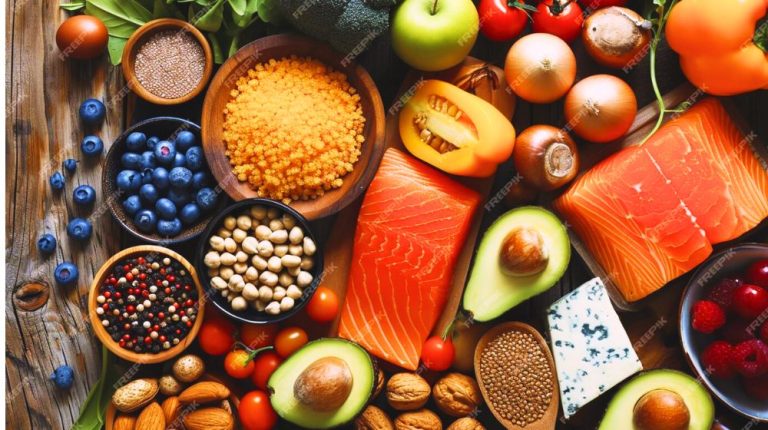Is Late-Night Eating Harmful To Weight Loss?
Eating before bedtime is a common habit. Whether it’s a late dinner, a snack in bed, or even waking up in the middle of the night to curb hunger, many people find themselves eating late at night.Does this sound like you? Is late-night eating bad for weight loss?
These eating patterns are worth reconsidering. They can increase the chances of consuming more calories than your body needs, which can lead to weight gain and metabolic issues.
Studies indicate that maintaining a healthy weight can extend your lifespan and enhance your mobility.
Here’s what you need to understand about how your metabolism influences your weight loss goals and tips on managing late-night snacking.
Understanding Your Metabolism’s Daily Cycles
Your body operates on a circadian rhythm, often referred to as the “biological clock.”
This circadian rhythm is a natural 24-hour cycle that governs various physiological processes. It is influenced by environmental factors like light and darkness, helping your body align its functions with the day-night cycle.
Metabolism, the process by which your body converts food into energy, is also guided by this rhythm.
During daylight hours, when activity levels are generally higher, the body is more efficient at digesting and metabolizing food. Research indicates that your body burns more calories at rest and processes food more effectively earlier in the day compared to nighttime.
Late-night eating can interfere with your circadian rhythm, potentially leading to weight gain.
Studies have found that eating later in the day, particularly at night, is associated with weight gain. This misalignment between your internal clock and food intake can also contribute to insulin resistance and other metabolic issues.
4 Ways Late-Night Eating Impacts Your Body
As nighttime approaches, do you find yourself craving a snack?
For many, reaching for food before bed is a common habit, but it’s often driven by psychological cues rather than actual hunger. And, as you’ve learned, this habit may not be the healthiest choice.
- Increases Hunger Levels
Surprisingly, eating late at night can actually make you feel hungrier. This happens because late-night eating can interfere with the hormones that control your feelings of hunger and fullness.
When you eat close to bedtime, it can trigger more cravings, leading you to reach for additional snacks. - Burns Fewer Calories
At its core, weight management is a numbers game: you need to consume fewer calories than you burn.
Late-night eating can lead to weight gain because you’re likely adding extra calories that your body doesn’t need for immediate energy.
Moreover, your metabolism slows down at night. A slower metabolism can lead to weight gain, especially if you’re consuming a large meal before bed and surpassing your daily caloric needs. - Encourages Fat Storage
A study from Harvard involving a small group of 16 overweight or obese participants revealed that eating later in the day could lead to increased hunger, reduced calorie expenditure, and greater fat accumulation
- Disrupts Your Circadian Rhythm
Eating late at night can also disrupt your body’s circadian rhythm and impact your sleep patterns. Research indicates that eating outside of your natural circadian rhythm, such as consuming food late in the evening instead of during the day, may heighten the risk of developing metabolic disorders.
These issues, over time, can contribute to weight gain.
To mitigate these effects, consider starting your day with a high-fiber and high-protein breakfast. Studies suggest that such breakfasts help maintain energy levels throughout the day, promote feelings of fullness, and reduce the likelihood of snacking later.
When Should You Stop Eating at Night to Support Weight Loss?
There isn’t a one-size-fits-all answer for when to stop eating in the evening, as it varies based on individual schedules and light exposure.
Generally, it’s recommended to finish eating at least three hours before you go to bed. The exact time to stop eating will depend on your personal nightly routine.
For example, if you go to bed at 8 p.m., having dinner by 5 p.m. might be ideal. Conversely, if you turn in at 10 p.m., a dinner around 7 p.m. could be more suitable.
Alternatively, you could have an earlier dinner and then enjoy a light snack, as long as your total calorie intake remains within your daily limit.
If you find yourself hungry later at night, opt for a light, satisfying snack like a cup of air-popped popcorn, which contains just 62 calories.
FAQ
What should I do if I frequently wake up feeling hungry?
If you often wake up hungry in the middle of the night, try having slightly larger meals for breakfast and lunch. This can help reduce hunger later in the day, making it easier to manage your appetite before dinner and bedtime.
How late should you have your last meal if you practice intermittent fasting?
For those practicing intermittent fasting or concerned about weight gain from late-night eating, it’s advisable to finish eating at least three hours before going to bed.
The Bottom Line
Ultimately, eating late at night or snacking before bed can affect your energy levels and metabolism, potentially impacting insulin and blood sugar levels. However, the exact reasons and mechanisms behind these effects are not fully understood, and more research is needed as existing evidence is mixed.
If you want to experiment with earlier eating times, aim to finish your meals at least three hours before bedtime. This approach may help you better achieve your health and weight goals.



